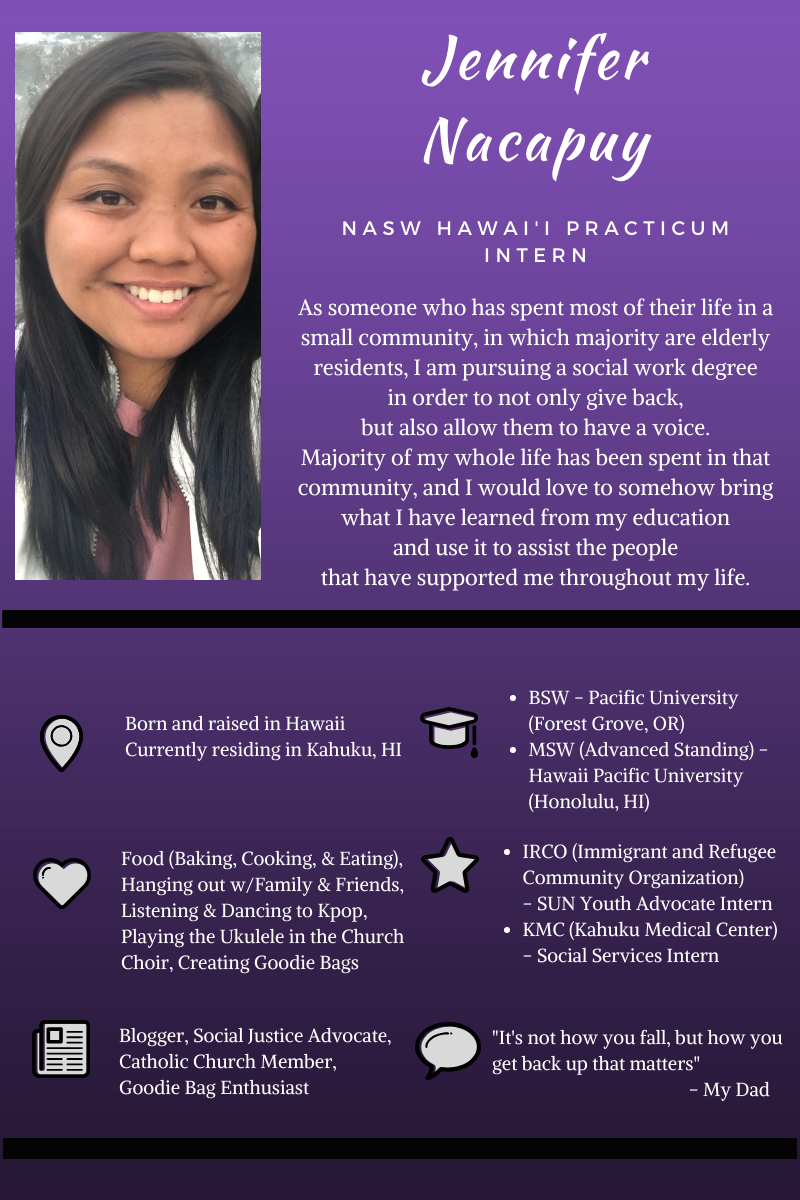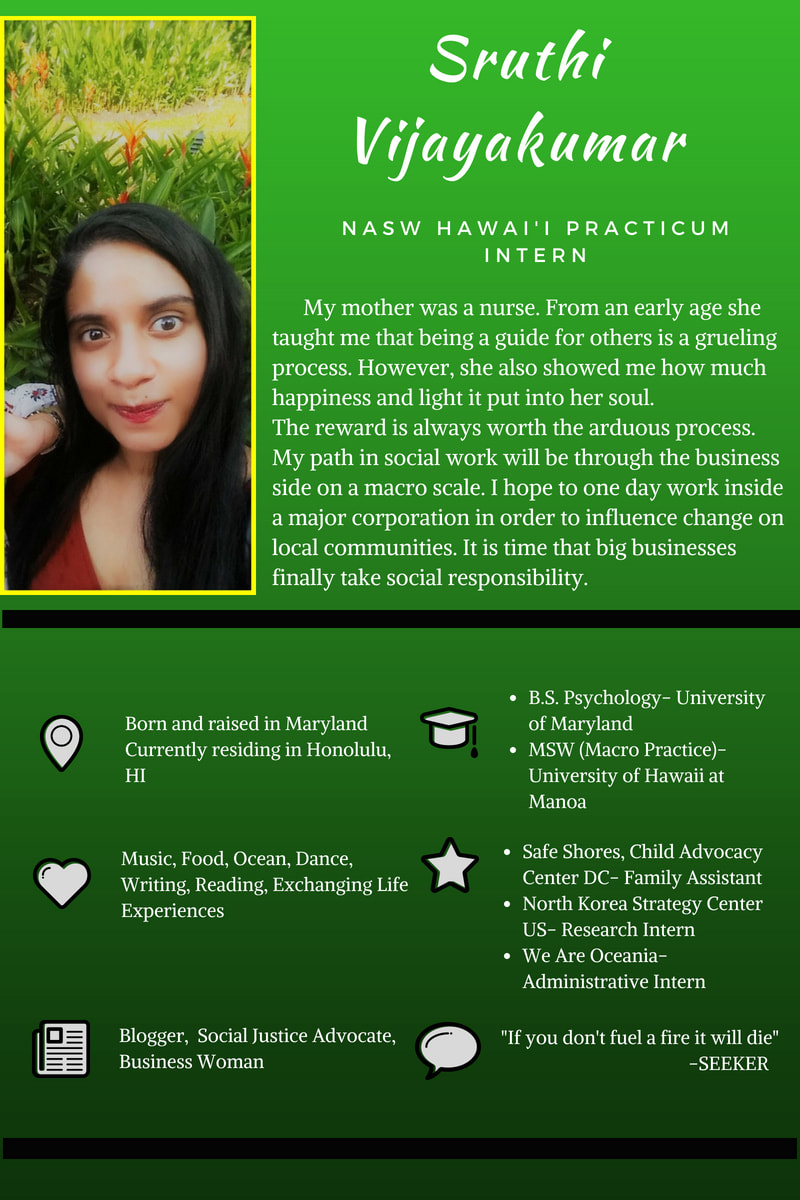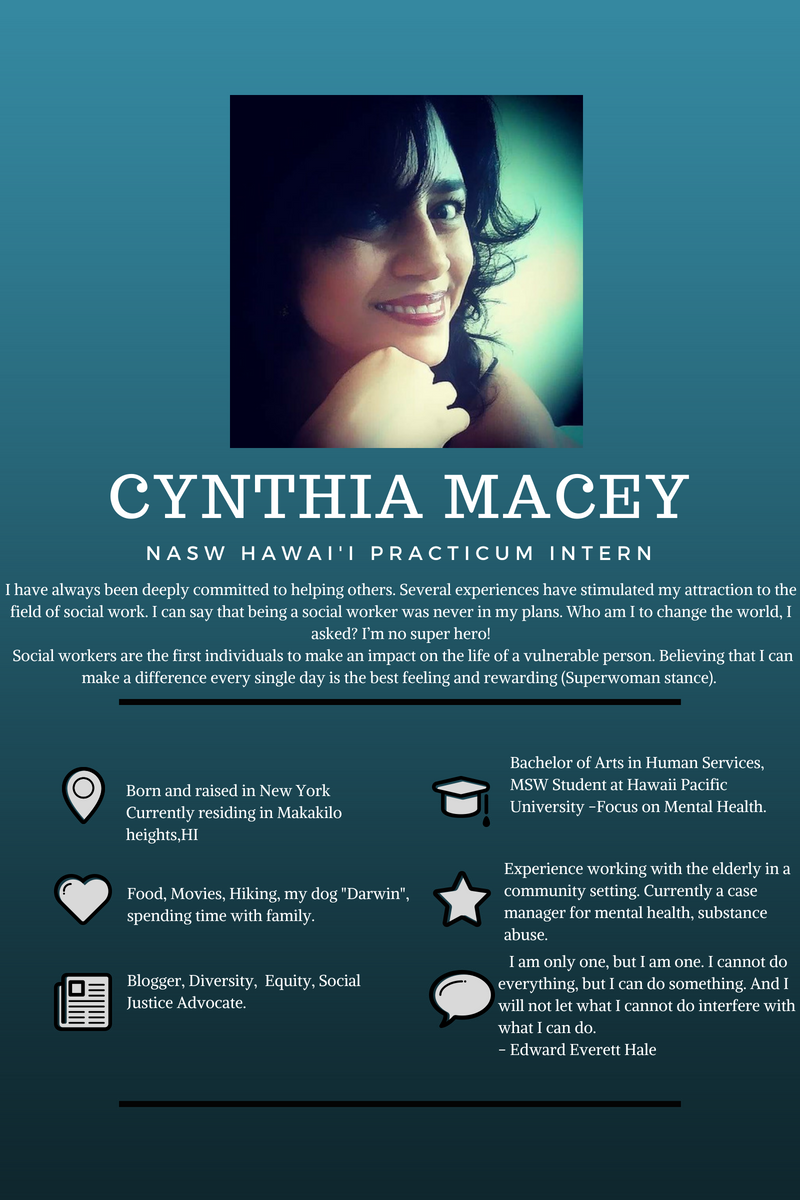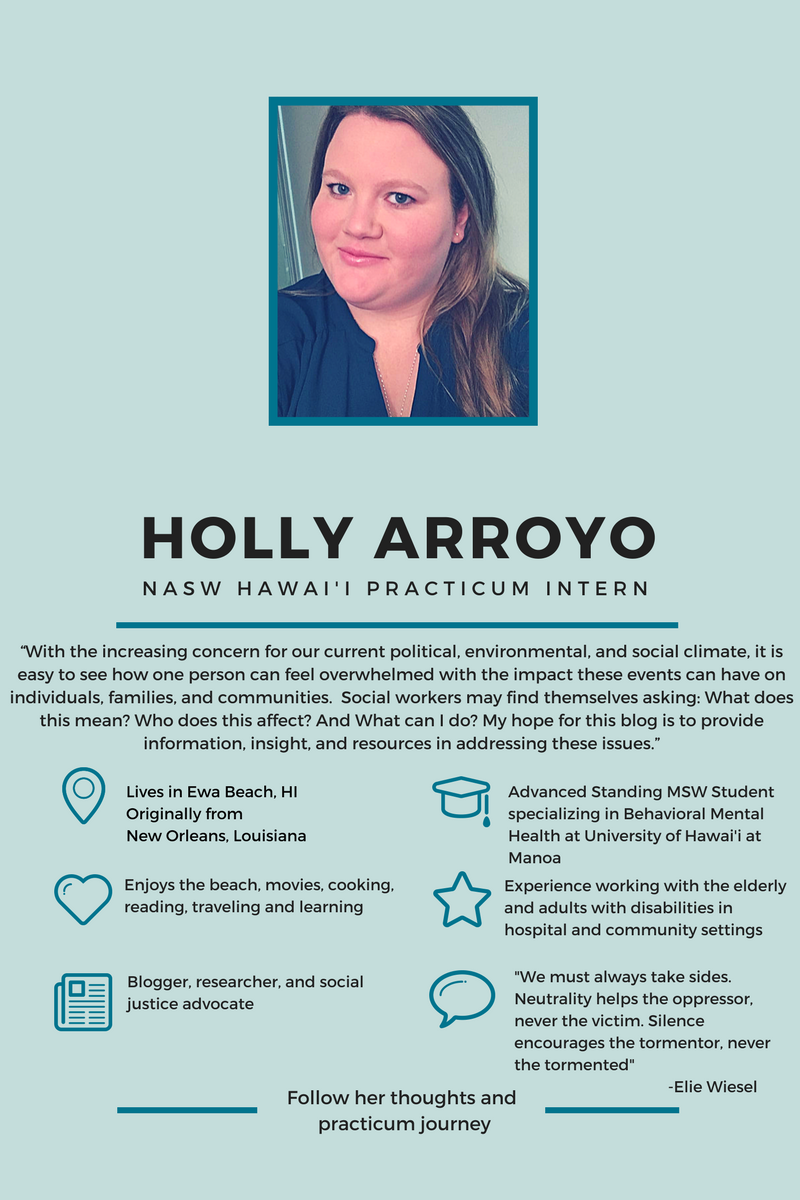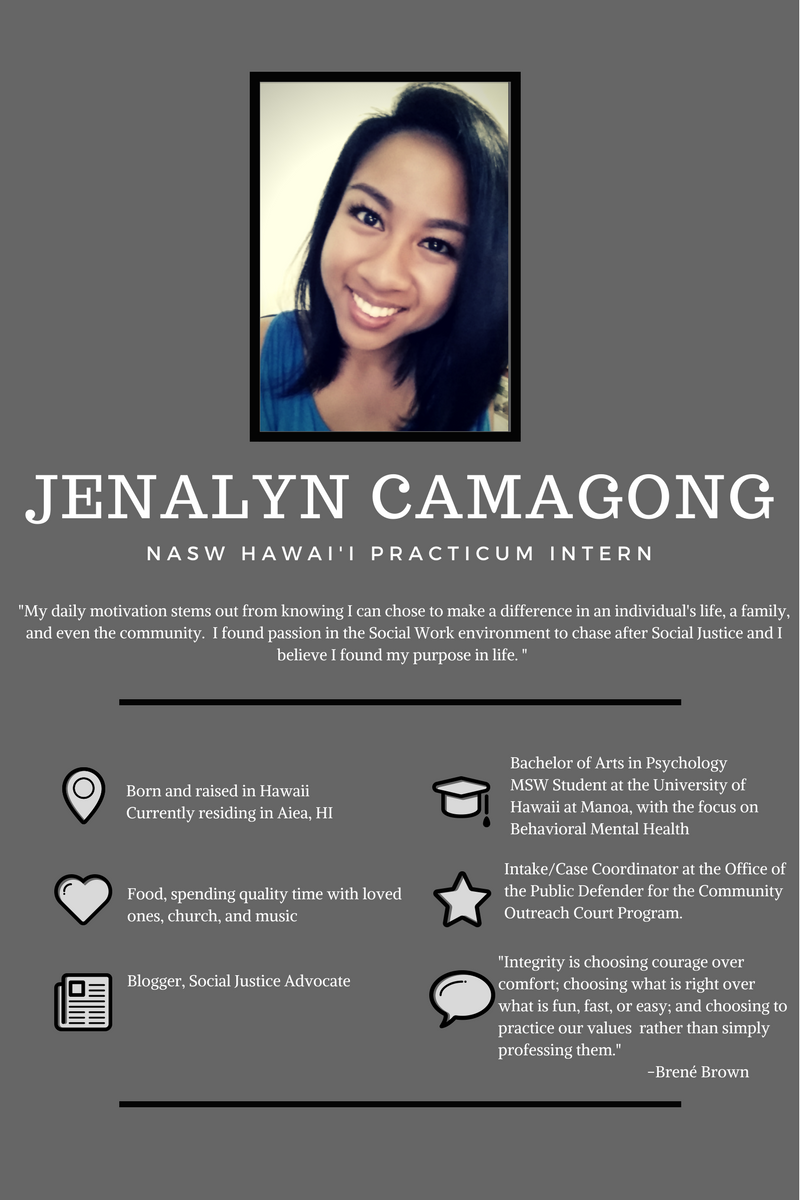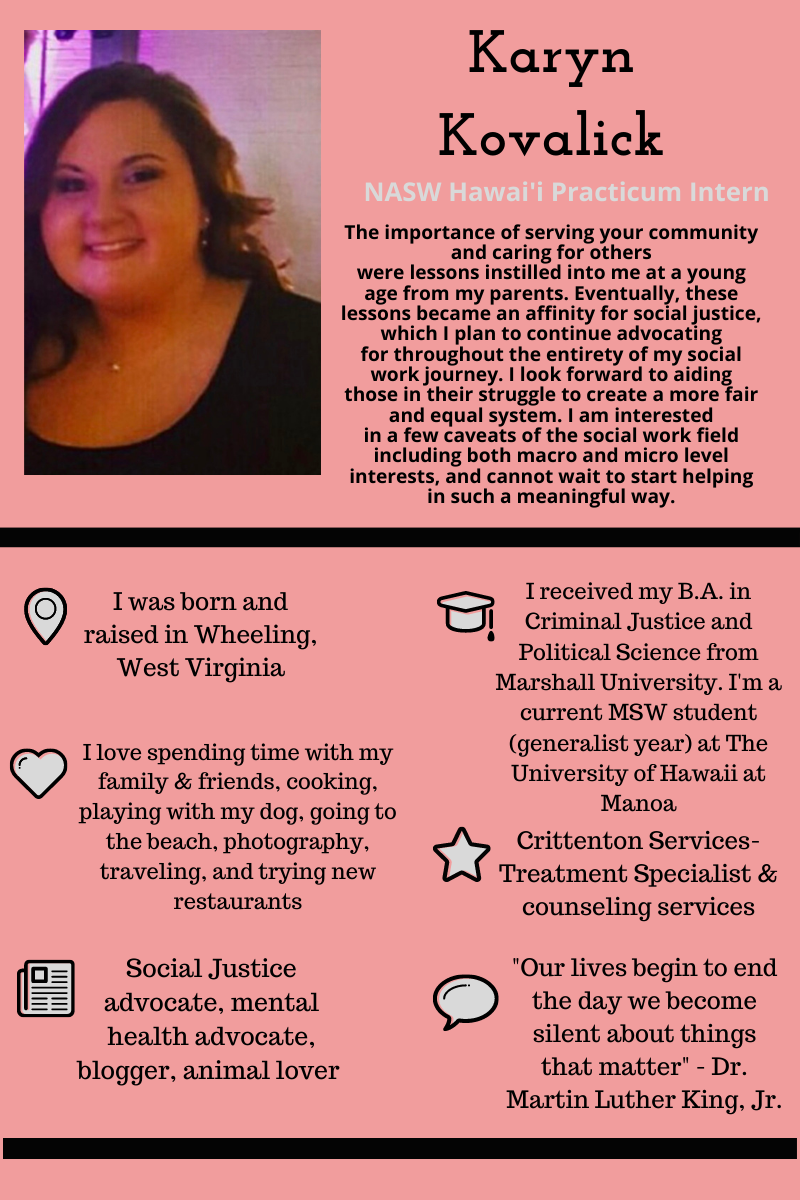|
By Holly Arroyo
During one of my social work classes last week, a statement was made that started an interesting debate. I can’t quote exactly what was said but it sounded like this: One way to be an effective social worker is to pick a group of people that is different from you, learn all you can about that group and advocate for them. Some viewed this statement as discouraging to those that choose to work with groups that they have shared experiences or similarities with, such as women advocating for women or a recovering addict working with other addicts. Others simply viewed it as a general statement to advocate for those who do not have a voice or means to advocate for themselves. But what I initially interpreted the statement to mean was to use your privilege as means of helping those who are different from myself. Now again, whether that was the intended meaning or not I am not sure, but I do know that, for me, it has made me think more about the role of privilege in social work practice and social justice advocacy. I did not begin to openly discuss what the concept of white privilege meant until I started college. I recognize that very fact is evidence of my own white privilege because racism and discrimination were not a regular part of my life while in high school. But college is the time and place to interact with people from different walks of life, so it makes sense that was where my recognition of my own privilege began. Understanding how being white made my life easier is not enough to be considered an ally. I need to act. But how do I advocate for racial justice without undermining the very cause I am aligning myself with? I do not want to be a “white savior” and leverage my privilege as means to attain my own perception of equality. How can I be a better ally? Listening, education, and action are key. Being present and active listening provide invaluable opportunities for learning about the concerns and experiences of others. So often we busy ourselves with formulating our own verbal responses or processing our emotional reactions to the things we hear, that we forget to see the person and hear their message. When a person shares their personal experiences with discrimination or oppression, the first words out of my mouth should not be “not all white people…”. Did I truly hear what was being shared and consider the impact those experiences have on that person? Or did I make it about myself? Being an ally and supporting those affected by systematic racism and oppression means understanding that it is not about me. This is not about making myself feel better about my own privilege, but rather humbling myself and trying my best to truly hear the message and empathize with the person sharing it. It’s also important to remember that listening to the shared experiences of marginalized peoples is not enough and that further education is essential in understanding the historical and cultural context of discrimination. It is not my African American friend’s responsibility to educate me on racism, that is too much to put on someone who already living with it daily. Being a middle class, educated white female, there are numerous resources available to me that I have a responsibility to use to educate myself. It is also worth mentioning that this process is continuous. There is no level of education for me to achieve in my effort to become a better ally. Things change and new information is made available, so it is my responsibility to stay informed. How can I put all this to good use? It can be difficult to determine how or where a person can do the most good but I think the best place to start is where you are now. For me, that means acting within my own community, creating a dialogue with others to help make more white allies and calling out racism when I see it. Confronting those closest to me about racism might make me uncomfortable or unpopular but it is better than remaining complicit. Stepping out of my comfort zone and refusing to remain a passive white ally are goals I must work towards daily. As so many wiser people before me have said (I am paraphrasing here), being a positive force for change is about doing what is right versus doing what is easy. My white privilege gives me the luxury of doing what it is easy, but choosing to do what is right, no matter how uncomfortable it may be or unpopular it may make me in my own community, is how I can be a better ally.
0 Comments
|
Author2020 Spring Semester blog posts are written by Jennifer Nacapuy. 2018-2019 Academic Year blog posts are written by Sruthi Vijayakumar & Cynthia Macey. 2017-2018 blog posts were written by Holly Arroyo & Jenalyn Camagong CATEGORIES
All
ARCHIVES
September 2020
|

